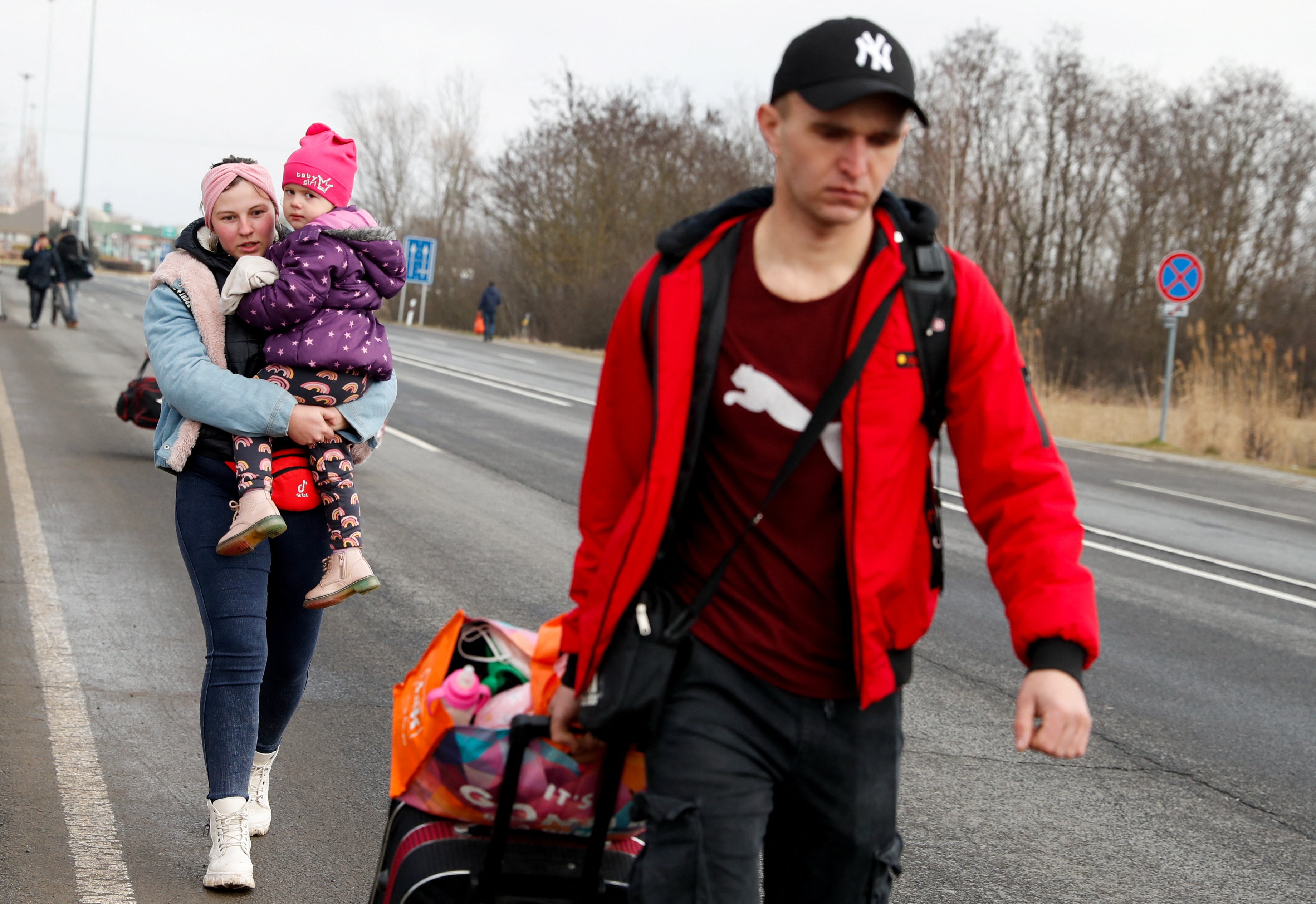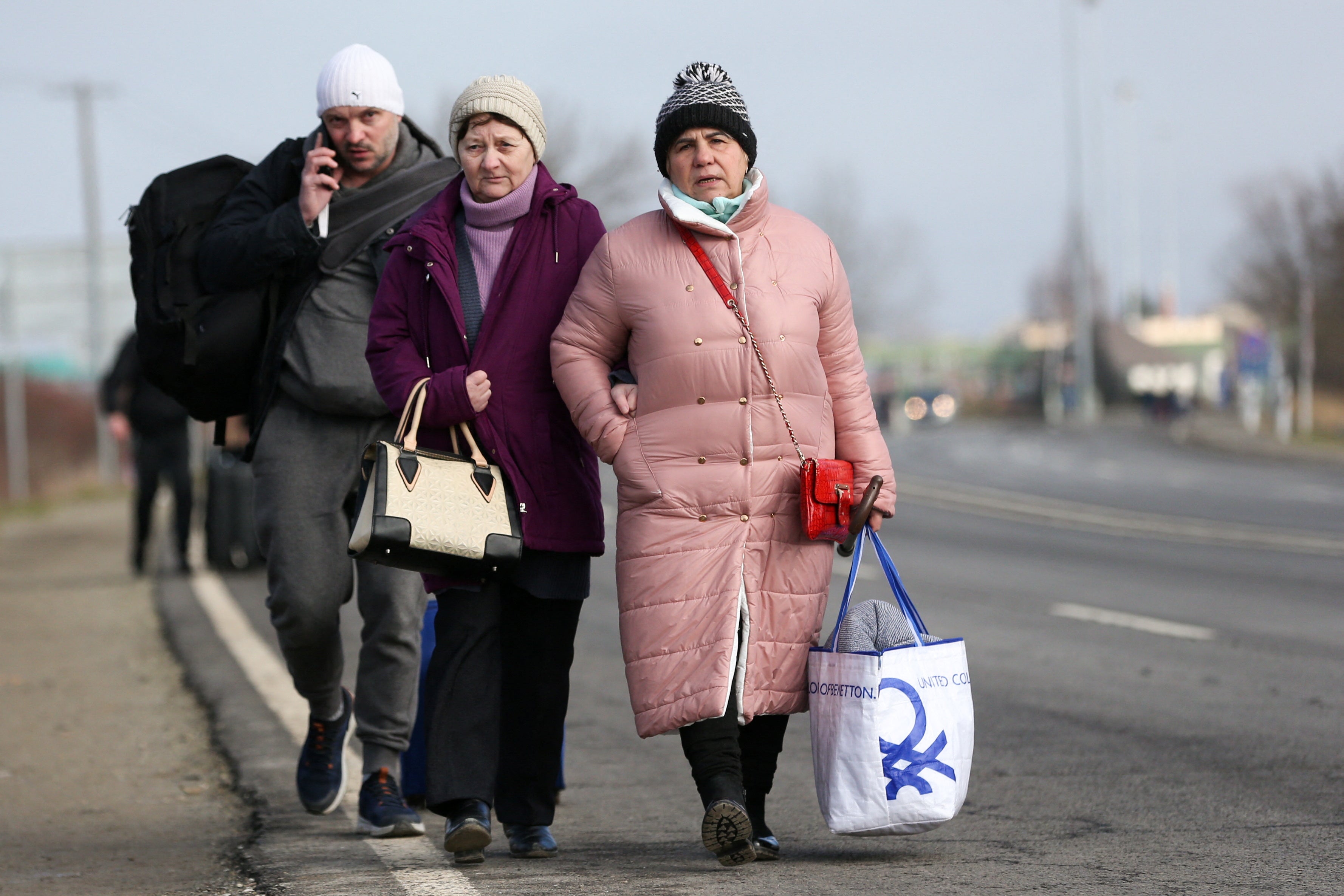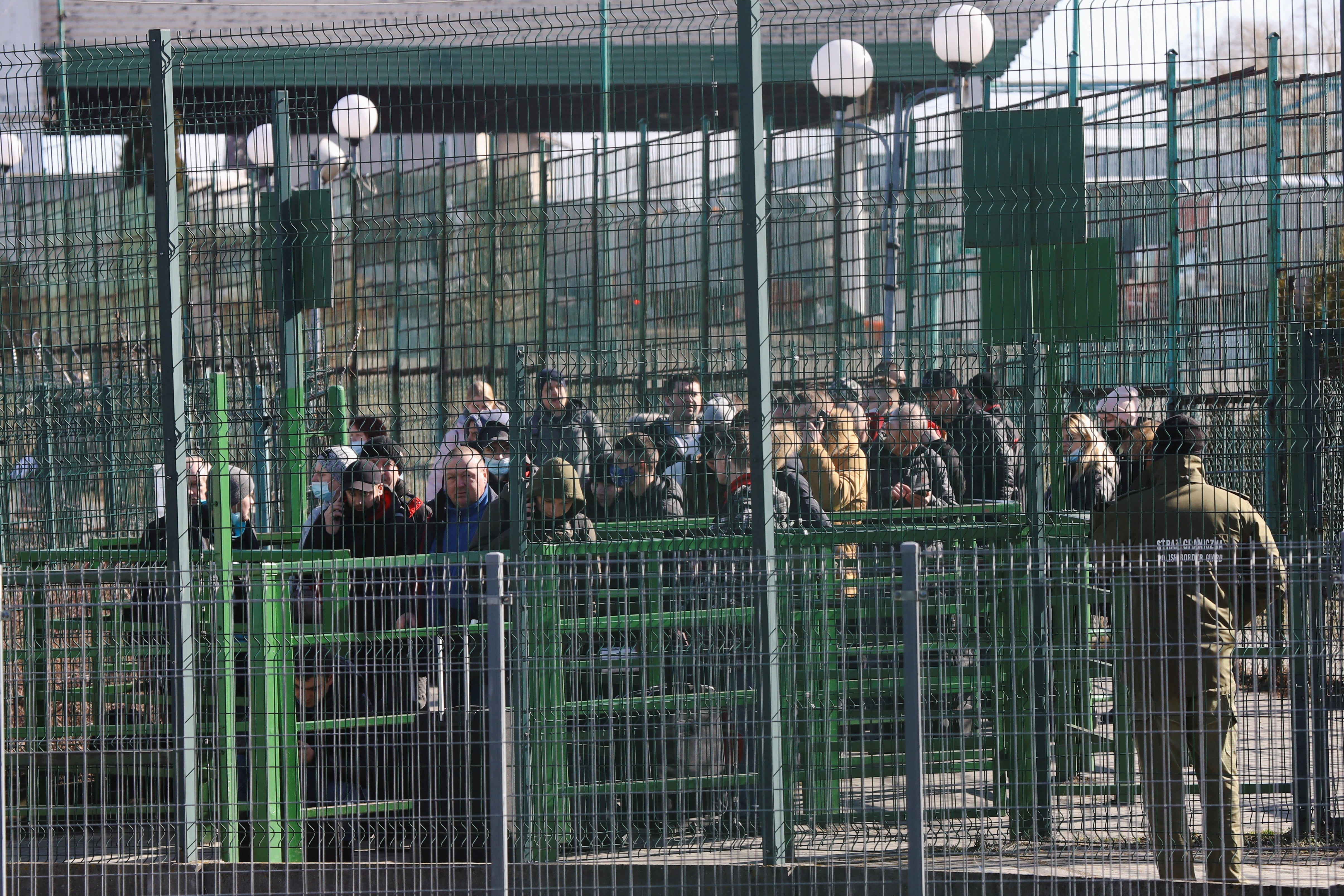Britain fails to set up refugee route as thousands flee Ukraine after Russian invasion
No safe and legal route for Ukrainians to travel directly to UK for asylum as exodus begins

Your support helps us to tell the story
From reproductive rights to climate change to Big Tech, The Independent is on the ground when the story is developing. Whether it's investigating the financials of Elon Musk's pro-Trump PAC or producing our latest documentary, 'The A Word', which shines a light on the American women fighting for reproductive rights, we know how important it is to parse out the facts from the messaging.
At such a critical moment in US history, we need reporters on the ground. Your donation allows us to keep sending journalists to speak to both sides of the story.
The Independent is trusted by Americans across the entire political spectrum. And unlike many other quality news outlets, we choose not to lock Americans out of our reporting and analysis with paywalls. We believe quality journalism should be available to everyone, paid for by those who can afford it.
Your support makes all the difference.Britain has not set up a route for Ukrainian refugees to reach UK shores, it emerged last night, as thousands headed to the border following the Russian invasion.
The UK has stopped accepting visa applications from Ukrainians stuck in the country, meaning there is no safe and legal route for them to seek asylum in Britain unless they have British relatives.
Countries surrounding Ukraine are braced for an exodus and the UN Refugee Agency has warned of “devastating humanitarian consequences”.
The United States has predicted that up to 5 million people could be displaced by the conflict, and Poland alone is preparing to receive up to 1 million refugees.
Steady lines of people carrying backpacks and dragging suitcases formed at border crossings on Thursday, hours after Russian tanks rolled across Ukraine’s eastern borders.
The International Rescue Committee urged states to commit their support publicly, with senior representative and former French minister Harlem Desir telling The Independent: “This should not be looked at as another migration crisis. This is a crisis of war. It should not be business as usual, we need real support for the Ukrainian people.”
Boris Johnson told the House of Commons on Thursday that 1,000 troops had been put on standby “to help the humanitarian exodus in neighbouring countries” and insisted the government was helping British nationals.
However, an announcement on the Home Office website said: “Ukrainian nationals in Ukraine (who aren’t immediate family members of British nationals normally living in Ukraine, or where the British national is living in the UK), are currently unable to make visa applications to visit, work, study or join family in the UK.”
It said the UK visa application centre in Kiev was closed and all related services in the Ukrainian capital have been suspended.

Dependents of British nationals can apply in the city of Lviv, in western Ukraine, but Ukrainians without close British relatives can only obtain UK visas if they reach centres in Poland, Romania, Hungary and Moldova.
Priti Patel has announced visa concessions for Ukrainians who are already in Britain for work, study and tourism, extending the time period before they must leave the country.
But there has been no announcement of a resettlement scheme or other measures in response to an expected exodus of refugees, despite offers of help from numerous other countries.
Mr Johnson’s spokesperson said: “In terms of refugees, obviously it’s relatively early time at the moment. But we have provided support already to help at the border should we start to see a humanitarian crisis emerge, and obviously we are ready to deploy that.”
The Independent understands that the government expects many Ukrainians to stay in eastern Europe in the short term, or in Schengen countries where they can stay visa-free for 90 days, and is not immediately bracing for a rise in small boat crossings.
Ministers are pressing ahead with plans to make arriving in the UK “without permission” a criminal offence punishable up to four years in prison, which would apply equally to asylum seekers of all nationalities.

The UN Refugee Agency (UNHCR) previously called the plans “deeply concerning” and said criminalising the act of arriving in the UK to seek asylum violates the 1951 Refugee Convention, which the government denies.
The Nationality and Borders Bill, which is currently being considered by parliament, follows a change to immigration rules meaning that asylum applications from people who have temporarily resided in safe third countries can be declared “inadmissible”.
It means Ukrainians forced to travel to countries such as Poland, in order to obtain UK visas, may later be refused asylum.
EU Commission president Ursula von der Leyen on Thursday said EU members neighbouring Ukraine were working on contingency plans to “welcome and host” refugees.
“We hope there will be as little as possible refugees but we are fully prepared for them and they are welcome,” she added.
Ireland’s taoiseach Micheal Martin said the country would waive visa requirements for all Ukrainian people who travel there.
It came as figures showed the number of asylum claims made in the UK at the highest level in nearly two decades, while the backlog of cases waiting to be determined continues to soar.
Almost three-quarters of asylum claims were granted on an initial decision, and almost half of appeals were successful.
A Home Office document said the increase in applications was linked to the easing of Covid travel restrictions “and to a sharp increase in small boat arrivals to the UK”, of which “almost all claim asylum”.
In total, more than 28,5000 people crossed the Channel on small boats in 2021 – triple the number in 2020.
A government spokesperson said: “Our priority has been to support British nationals and their families in Ukraine. This has included temporarily waiving application fees for those eligible under the Family Migration route, allowing entry for 12 months for other who did not meet the requirements and fast-tracking visas.
“We continue to work with our international partners on a range of issues as the situation develops, including migration.”



Join our commenting forum
Join thought-provoking conversations, follow other Independent readers and see their replies
Comments